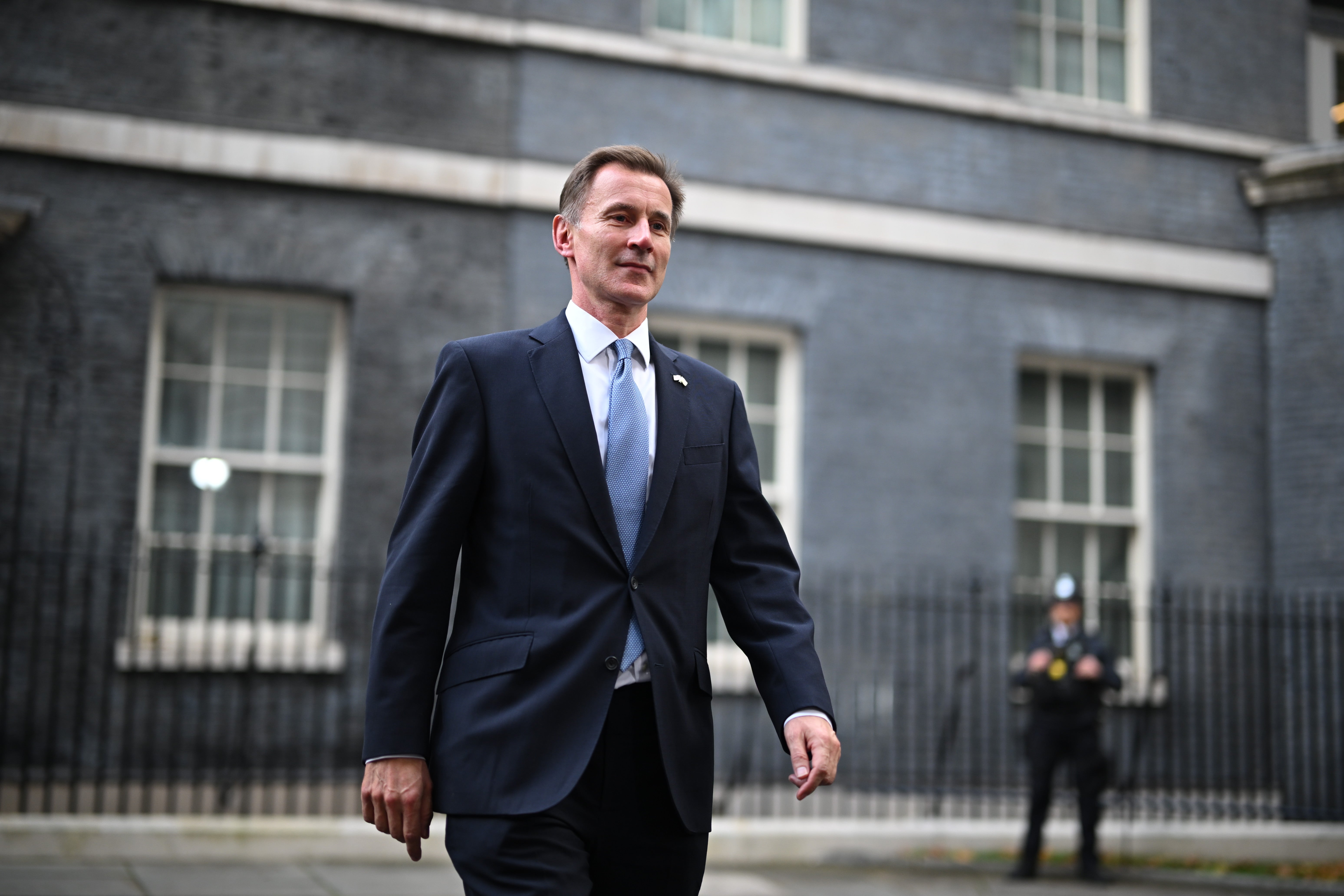Jeremy Hunt’s Budget plans signal political turmoil ahead
The sheer variety and scale of the tax hikes being canvassed are remarkable, says Sean O’Grady


Though it may be recalled with a slight shiver, Kwasi Kwarteng’s ill-fated mini-Budget was delivered only six weeks ago. It feels longer, almost a lost age. As chancellor, Mr Kwarteng unveiled the largest programme of tax cuts since 1972. Now, with the Treasury under new management, there is much talk of raising taxes. His successor, Jeremy Hunt, has already reversed most of Mr Kwarteng’s measures and dismantled his “plan for growth” – the proposed investment zones being the latest to be ditched. But Mr Hunt, if the rumours are to be believed, wants to raise much more money and feels unencumbered by any manifesto commitments – or even traditional Conservative sensitivities. And, again unlike Mr Kwarteng and Liz Truss, Mr Hunt seems intent on further public spending cuts.
There will be political trouble ahead.
No doubt much of this is the usual process of managing expectations, but the sheer variety and scale of the tax hikes being canvassed are remarkable. It is as if Mr Hunt had asked for a list of things his backbenchers would find most offensive: freezing income tax thresholds for years longer; raising the rates, including restoring the 50p rate scaled back by George Osborne a decade ago; reducing tax relief on pension contributions for higher earners; further limiting the tax-free lifetime limit for a pension pot (albeit at more than £1m); higher taxes on dividends and capital gains; permitting more increases in council tax; and, a particularly radioactive zone, raising inheritance tax. Given that Mr Hunt inherits a situation where the national tax take is running at a 70-year high, it suggests that even if only a few of his ideas come true, that slice of the national cake will soon be up to wartime levels.
Mr Hunt is also looking for spending cuts, with a reported plan to freeze most nominal departmental spending levels for two years, until the next election, which means deep real-terms cuts after inflation; with deeper cuts to follow in later years. It’s obviously politically driven, deferring the most painful cuts until after polling day, but the fact they are being debated at all is testament to the urgency of the position. Some £50bn is required to fill the so-called black hole in the public finances.
Mr Hunt and Rishi Sunak will need to be very lucky to be able to get such a package through the House of Commons. Even with Gavin Williamson on hand to help with his dark arts, it would be a hard sell to Tory MPs accustomed to promising all things to all people. Many will rebel over the tax hikes; others at the spending cuts; some more will accept neither. After the autumn statement on 17 November, there are bound to be rebellions and votes lost in the Commons. The government may well have more luck with the real-terms reductions in public spending, but it will be a war of attrition to get the books to balance. There’s still no question the government would lose any formal vote of confidence; but the kind of impasse we experienced over Brexit in 2017-19 beckons once again – a parliament unwilling to make tough choices, but also refusing to dissolve itself to break the deadlock. It will be a politically unstable few weeks.



Join our commenting forum
Join thought-provoking conversations, follow other Independent readers and see their replies
0Comments